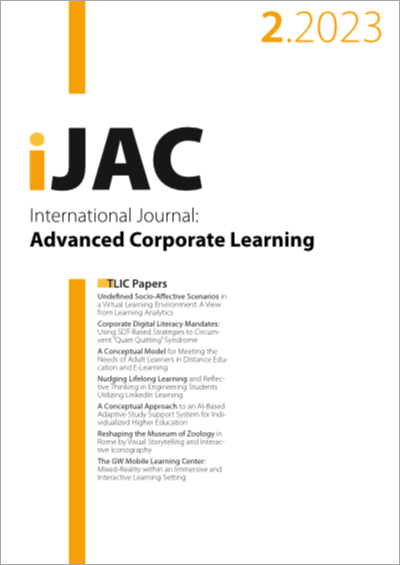Nudging Lifelong Learning and Reflective Thinking in Engineering Students Utilizing LinkedIn Learning
DOI:
https://doi.org/10.3991/ijac.v16i2.35555Keywords:
Engineering education, reflective thinking, digital learning tools, summarization, asynchronous learning, engineering managementAbstract
Abstract—Most engineering and technology-focused program curricula are firmly fixated on the required technical skills to meet the profession’s needs. Yet, in today’s rapidly changing, globalized world, engineers and technologists need more than technical competencies to meet the requirements of their professional work. This work illustrates how the LinkedIn Learning (LiL) platform was used as a “learning partner” to complement undergraduate engineering management courses to enrich metacognition and nudge lifelong learning tendencies. The rationale for integrating LiL into the course framework is examined, including study design and survey results. Summary research indicates students appreciated the LiL coursework assignments. Most respondents perceived that the LiL courses increased their knowledge and skills in the subject matter presented. The study illustrated movement towards self-determined learning behaviour and improved reflective capabilities.
Downloads
Published
How to Cite
Issue
Section
License
Copyright (c) 2023 Allan MacKenzie

This work is licensed under a Creative Commons Attribution 4.0 International License.



